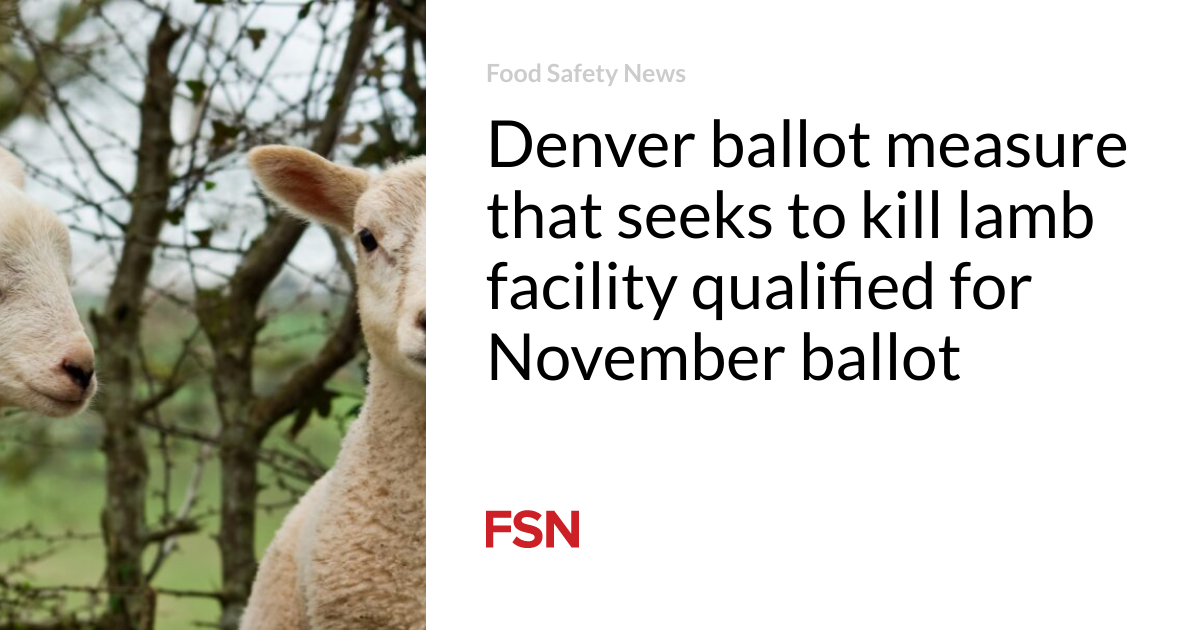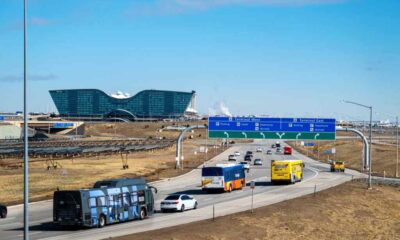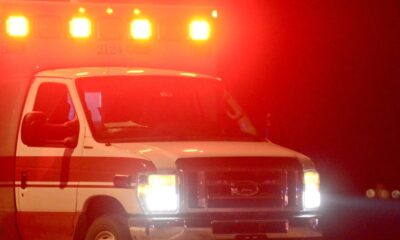Food
Denver ballot measure aimed at killing lambs qualified for November’s ballot

As a political tactic it has been virtually foolproof. You draw a line around entirely urban jurisdictions and then initiate a change in an agricultural practice that most voters will never have considered before. With all those urban voters, your spin is key.
A group called “Pro-Animal Future” is banking on this tactic to ban the sale of slaughterhouses and fur in the city and county of Denver. Unlike some previous ballot measures from animal activists that changed housing practices for all affected producers, the Denver Slaughterhouse ban would apply to only one: the employee-owned Superior Farms.
Suppose the ballot measure forces the closure of Superior Farms, with as much as 20 percent of the country’s lamb market. In that case, the Colorado State University (CSU) Regional Economic Institute estimates that current economic activity is $861 million and that 2,787 jobs will be lost.
Superior Farms is one of the few lamb processors in the United States. If Superior had to close, the loss of Superior would impact the U.S. lamb supply chain, the CSU study found. The reduced volume will likely consist of foreign imports.
In addition to Superior Farms, Colorado has 21 USDA-inspected sheep and lamb slaughter facilities with an annual capacity of 400,000, of which Superior accounts for 300,000.
Superior Farms is located north of the intersection of Colorado’s two major highways, among other industrial uses. There is no zoning plan.
It is one of the largest lamb processors in the country, having been in business since the 1950s. It ships lamb not only to most Colorado restaurants and grocery stores, but also to many out-of-state customers.
Nothing foretold that Superior Farms would be the target of a ballot measure aimed at closing or at least relocating the 70-year-old employee-owned company. A forced closure cannot occur without fully compensating Superior’s owners; Estimates say the ballot measure would cost Denver taxpayers more than $70 million.
The “Slaughterhouse Ban” initiative was approved in November by filing with the City and County of Denver Clerk & Recorder. That office needed 8,940 valid signatures to qualify for the municipal elections.
If approved by voters, the ballot measure would ban any business that kills livestock to produce human food. Livestock under Colorado law includes beef, lamb, pork and poultry.
The measure to kill Denver’s employee-owned lamb company is sponsored by animal activists. Pro-Animal Future, which wants to “end animal agriculture in Colorado” and advocates for “non-humans,” has made $100,000 in seed contributions. It promises its economic analysis and “green” jobs for the unemployed worker-owners.
(Click here to sign up for a free subscription to Food Safety News.)













